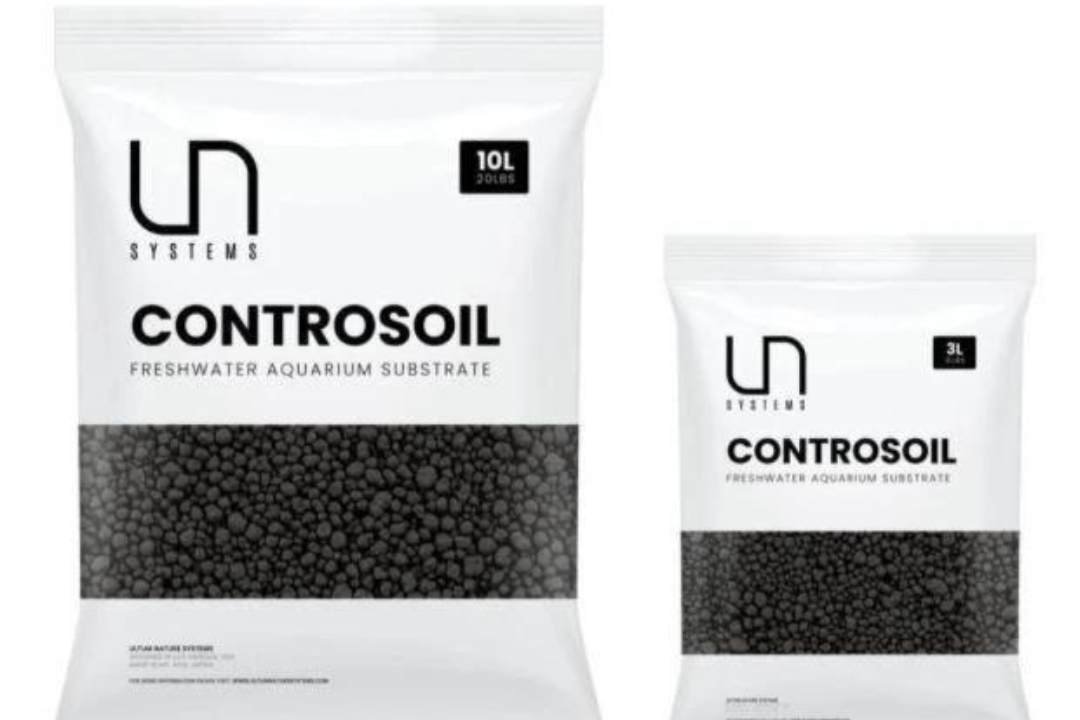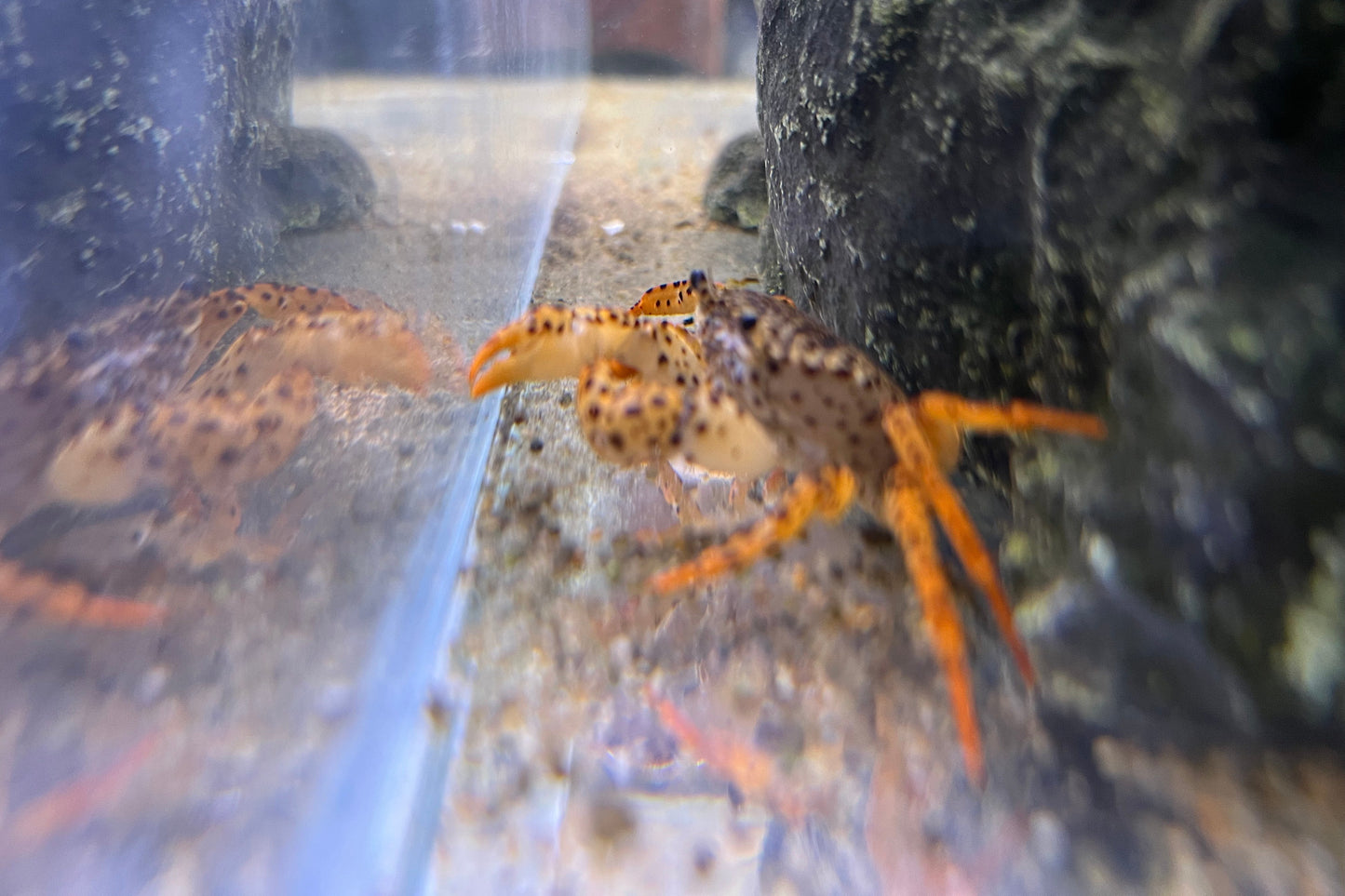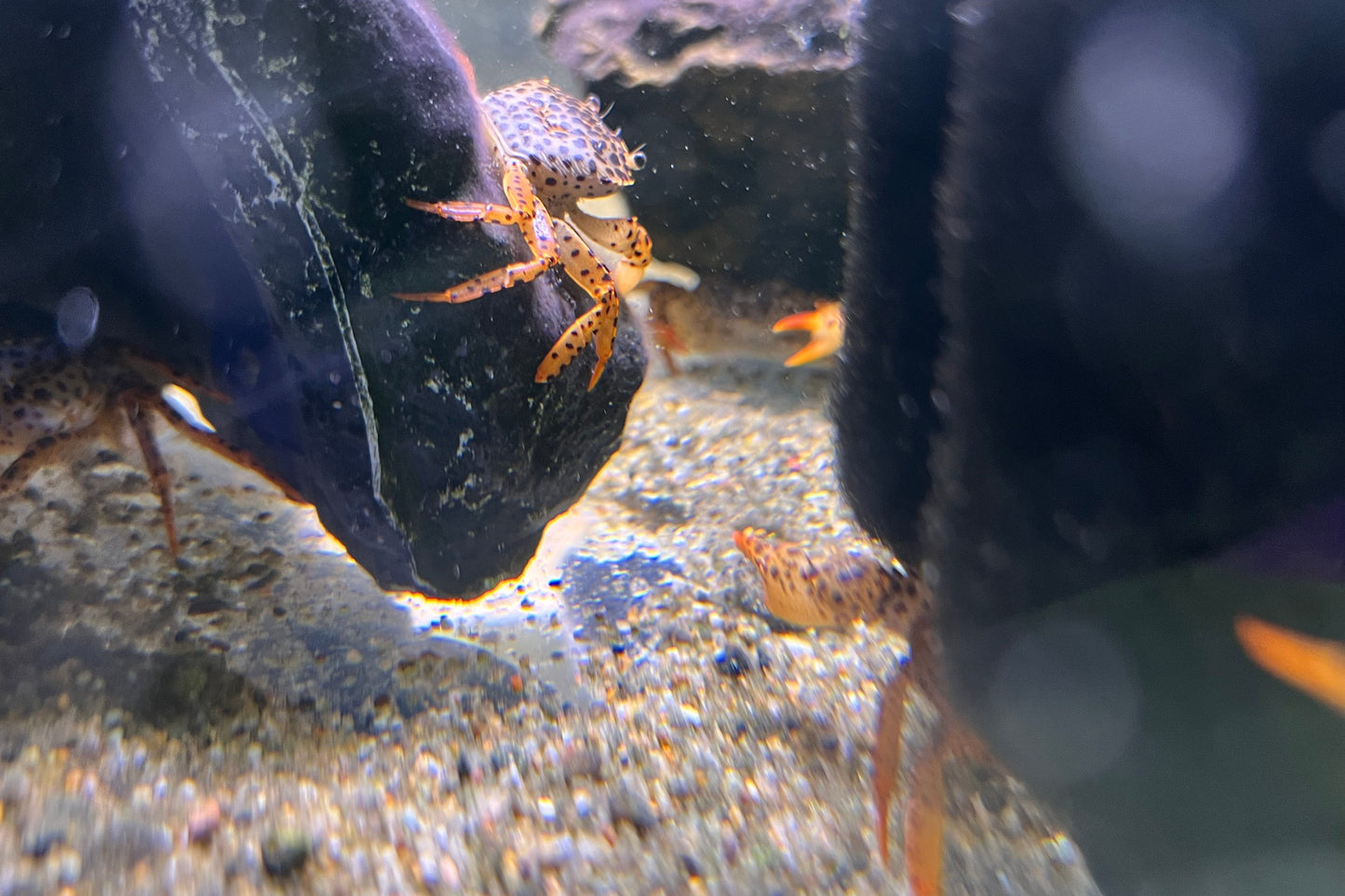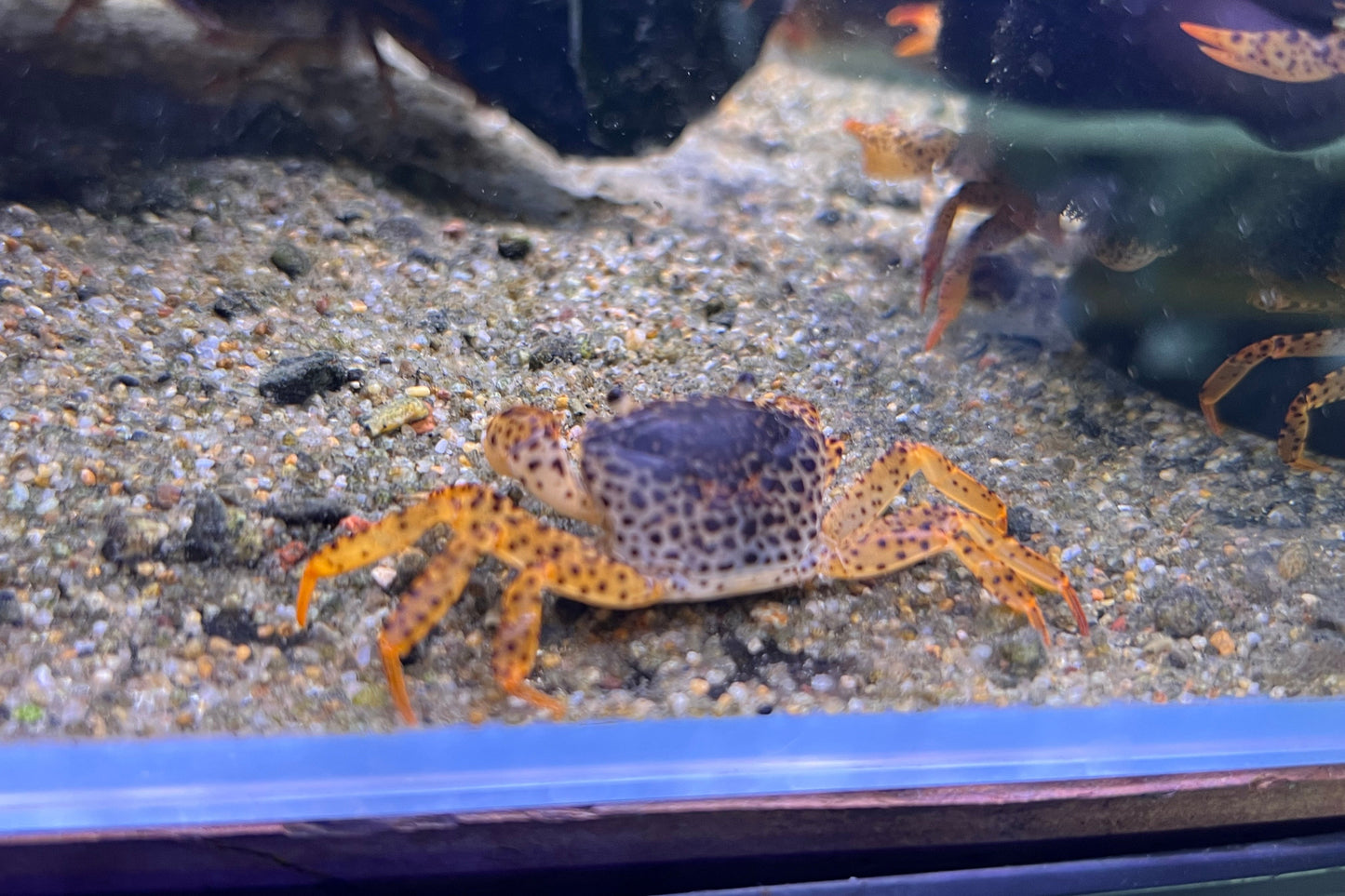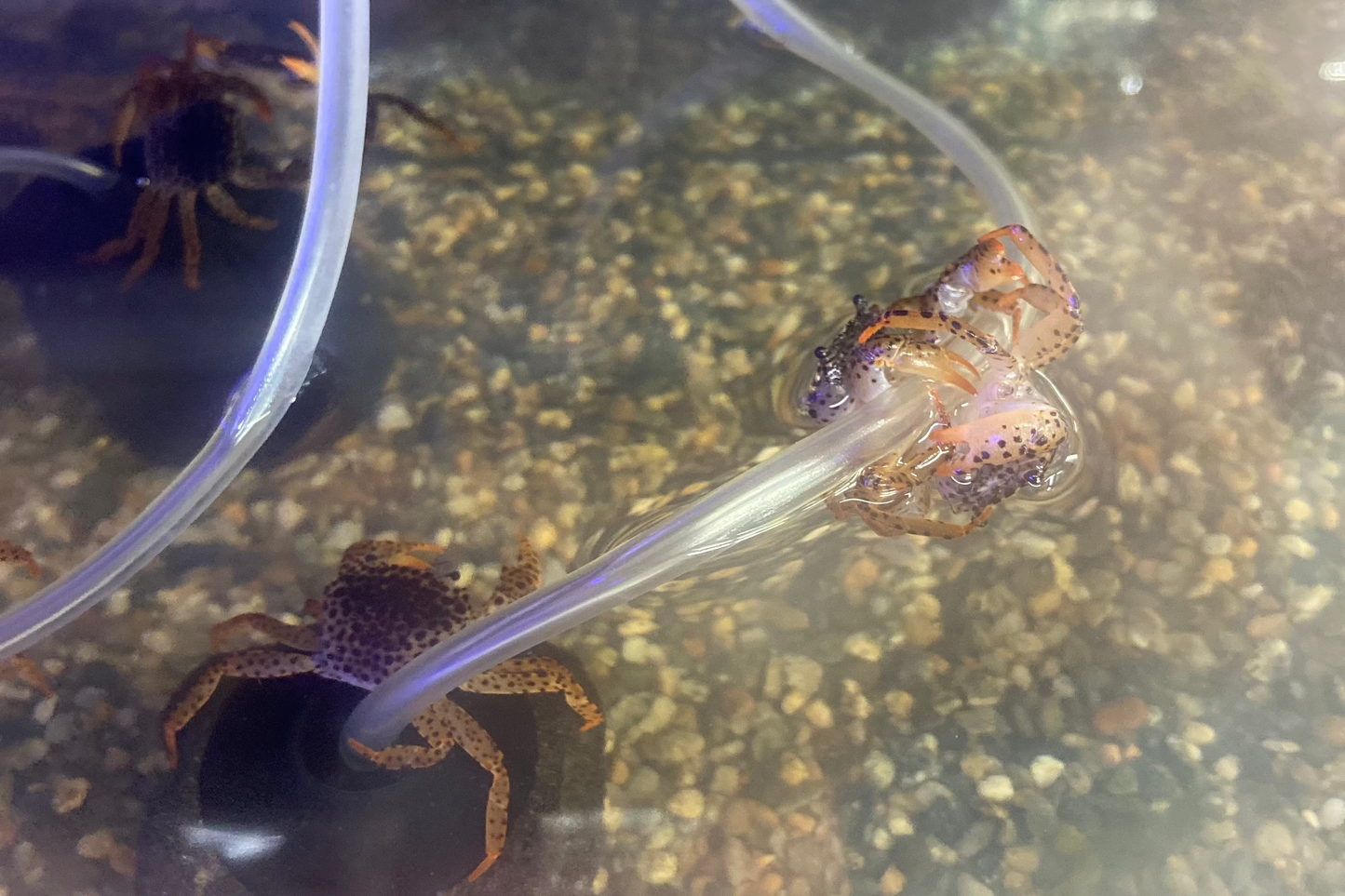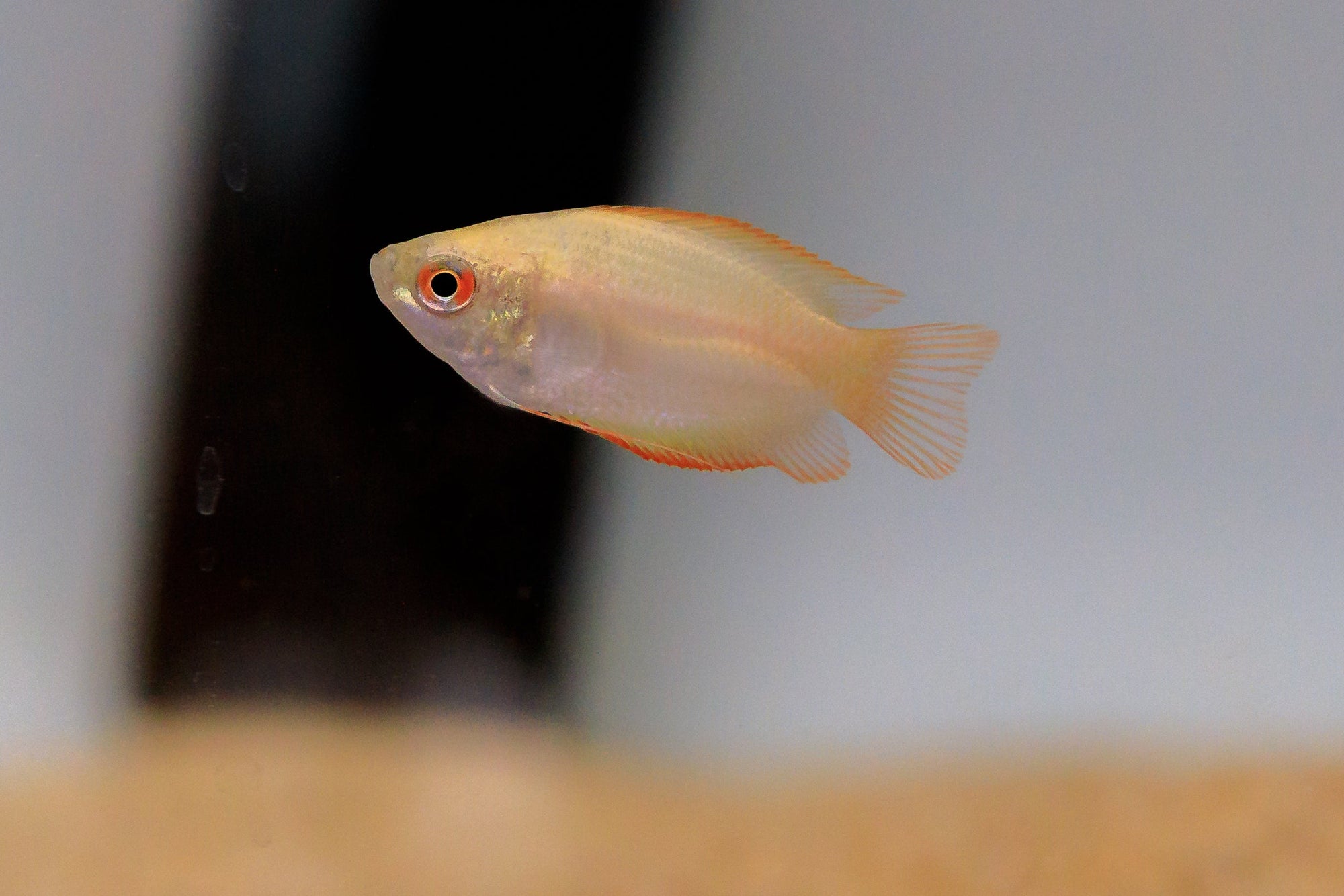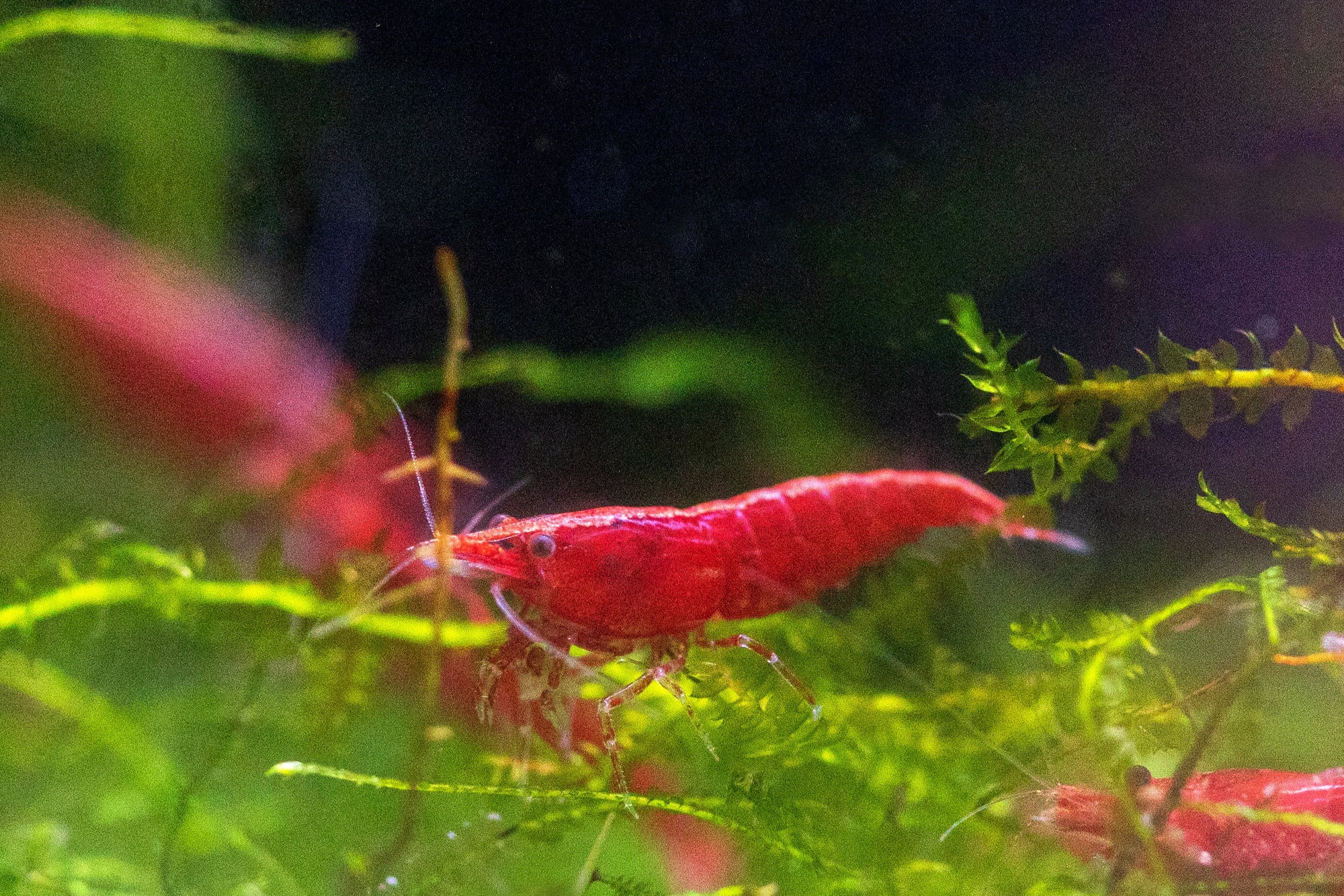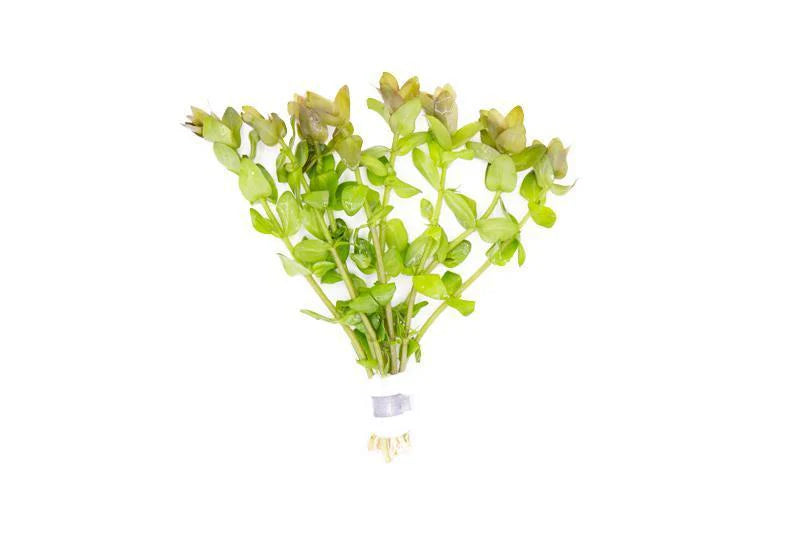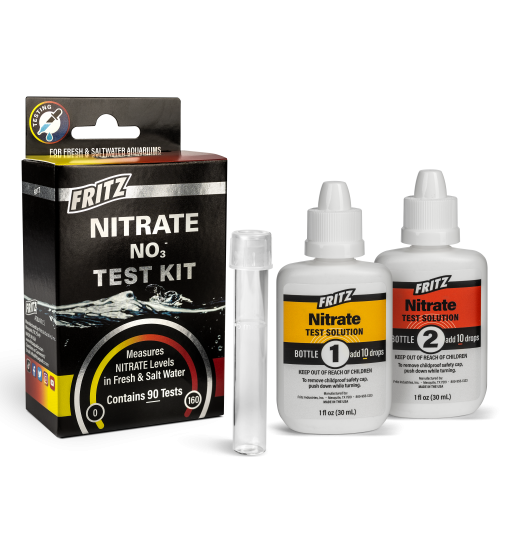This offer is valid for online purchases only, not valid at in-store location.
Panther Crab
-
Tank Size: Panther crabs require an aquarium of at least 10-20 gallons to provide enough space for their activities.
-
Water Parameters: Maintain water temperature between 72-78°F (22-26°C), a pH level around 6.5-7.5, and slightly hard water. Ensure good filtration to keep water clean.
-
Land and Water: Panther crabs are semi-aquatic. Provide an environment that includes both a water area and a land area with access to dry land, such as driftwood or rocks.
-
Hiding Spots: Create hiding spots in the form of caves, plants, or other decor to mimic their natural habitat and provide shelter.
-
Diet: Panther crabs are omnivores. Offer a varied diet that includes sinking pellets, live or frozen foods like bloodworms and brine shrimp, and occasional vegetables like blanched spinach or zucchini.
-
Territorial Behavior: Panther crabs can be territorial and may exhibit aggression, especially when establishing territories or during mating. It's best to house them individually or in a large enough tank with hiding spots to reduce aggression.
1-2 Day Shipping.
ALL LIVESTOCK orders will only be packed up and shipped Monday-Tuesday.
ALL LIVESTOCK purchases are non-returnable.
Please refer to our FAQ page for any other questions related to this subject.
-
Tank Size: Panther crabs require an aquarium of at least 10-20 gallons to provide enough space for their activities.
-
Water Parameters: Maintain water temperature between 72-78°F (22-26°C), a pH level around 6.5-7.5, and slightly hard water. Ensure good filtration to keep water clean.
-
Land and Water: Panther crabs are semi-aquatic. Provide an environment that includes both a water area and a land area with access to dry land, such as driftwood or rocks.
-
Hiding Spots: Create hiding spots in the form of caves, plants, or other decor to mimic their natural habitat and provide shelter.
-
Diet: Panther crabs are omnivores. Offer a varied diet that includes sinking pellets, live or frozen foods like bloodworms and brine shrimp, and occasional vegetables like blanched spinach or zucchini.
-
Territorial Behavior: Panther crabs can be territorial and may exhibit aggression, especially when establishing territories or during mating. It's best to house them individually or in a large enough tank with hiding spots to reduce aggression.
1-2 Day Shipping.
ALL LIVESTOCK orders will only be packed up and shipped Monday-Tuesday.
ALL LIVESTOCK purchases are non-returnable.
Please refer to our FAQ page for any other questions related to this subject.

